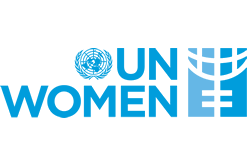The Civil Society Strengthening Platform (CSSP) was founded in 2017 as part of the UN Women/EU Programme ‘Ending Violence Against Women: Implementing Norms, Changing Minds.’ It united women’s NGOs across the Western Balkans and Türkiye to strengthen their roles nationally and regionally, particularly in supporting women and girls experiencing violence, with a focus on minority and disadvantaged groups. CSSP promoted civic engagement in CEDAW and Istanbul Convention monitoring, advocated for laws and services focused on addressing the needs of survivors of sexual violence, and fostered collaboration between women’s organisations, healthcare providers, and other key referral stakeholders. Though the project concluded in 2022, its impact continues, with resources still available below for ongoing support.

CSSP Partners
The Civil Society Strengthening Platform partnered with 9 women’s organisations from the Western Balkans and Türkiye.
Click on a country to see who our partners are, and click here to learn more about them.
Lobbying Tools & Resources
Below you can find a range of tools and resources which were developed throughout the five years of the project. The main CSSP publications are listed first, followed by country-specific resources and translations.
Publications
Albania
Bosnia and Herzegovina
Kosovo
Montenegro
North Macedonia
Serbia
Türkiye
Other Resources
CSSP Partner Organisations
Albania
Shqipëri
about
Bosnia & Herzegovina
Bosna i Hercegovina
Kosovo
Kosovë
North Macedonia
Северна Македонија
Serbia
Србија
Türkiye
Türkiye
For more information, please send an email to the WAVE Office at office@wave-network.org.
Implementing Norms, Changing Minds
The Civil Society Strengthening Platform (CSSP) is part of the three-year programme, ‘Implementing Norms, Changing Minds’, funded by the European Union and UN Women, which aims at ending gender-based discrimination and violence against women in the Western Balkans (Albania, Bosnia and Herzegovina, Kosovo*, North Macedonia, Montenegro, Serbia) and Türkiye, with a particular focus on the most disadvantaged groups of women.
* For the European Union, this designation is without prejudice to positions on status, and is in line with UNSCR 1244/1999 and the ICJ Opinion on the Kosovo declaration of independence. For UN Women, all references to Kosovo on this website shall be understood to be in the context of UN Security Council Resolution 1244 (1999).
UN Women’s preliminary assessment of gender equality and women’s empowerment in Türkiye and the Western Balkans, conducted at the end of 2014, revealed that – despite the adoption of legislation to advance gender equality in all these countries – strong patriarchal structures, unequal power relations between women and men, and the lack of political will of governments remain major obstacles to the full implementation of legislation. While Türkiye and the Western Balkan countries are at different stages of accession into the European Union, there is an opportunity and a necessity to advance the implementation of norms and standards outlined in European Union laws and policies – also known as the ‘acquis communautaire’.






